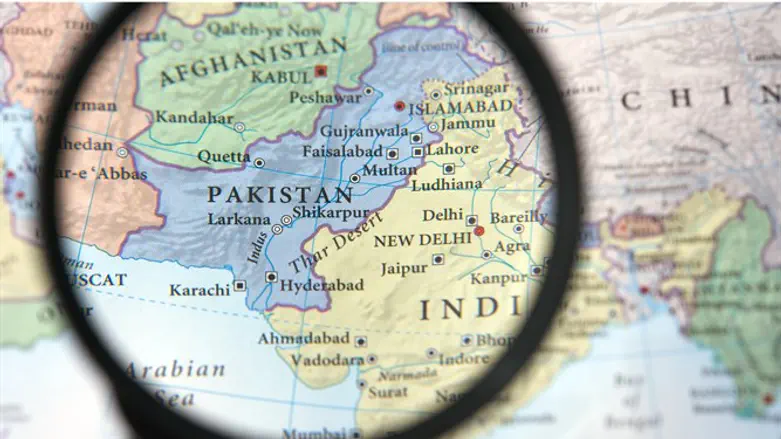
A suicide bomber targeting a political rally in southwest Pakistan on Friday killed 128 people, officials told AFP.
The blast, which was claimed by the Islamic State (ISIS) group, ripped through the crowd in the town of Mastung near the Balochistan provincial capital Quetta.
The attack is one of the deadliest in the country's history and was the latest in a string of attacks that have spurred fears of violence ahead of nationwide polls on July 25.
"The death toll has risen to 128," Balochistan home minister Agha Umar Bungalzai told AFP. A senior provincial government official also confirmed the figure, adding that 150 others were injured.
Emergency workers shuttled victims to nearby vehicles from the bombed-out compound as bystanders sobbed in the darkness due to the lack of electricity in the impoverished area.
According to senior provincial official Saeed Jamali, the bomber detonated in the middle of a compound where a political meeting was taking place. Another senior official, Qaim Lashari, also confirmed it was a suicide blast.
The explosion killed Siraj Raisani, who was running for a provincial seat with the newly formed Balochistan Awami Party (BAP), provincial home minister Agha Umar Bungalzai told AFP.
The attack was the most lethal since Taliban jihadists assaulted a school in the northwestern city of Peshawar in 2014, killing over 150 people, mostly children.
Friday’s attack came hours after four people were killed and 39 injured when a bomb hidden inside a motorcycle detonated near a Pakistani politician's convoy in Bannu, near the border with Afghanistan.
The politician -- Akram Khan Durrani, a candidate of the Muttahida Majlis-e-Amal (MMA) party -- survived, police said. No group has yet claimed responsibility for that attack.
On Tuesday, a bomb claimed by the Pakistani Taliban targeted a rally by the Awami National Party (ANP) in Peshawar.
Local ANP leader Haroon Bilour was among the 22 killed. Thousands flocked to his funeral the next day.
ISIS has a muted presence in Pakistan but has carried out brutal attacks there in the past, including a blast at a Sufi shrine in February last year which killed nearly 90 people.
Last month, a U.S. air strike killed the leader of the Pakistani Taliban, Maulana Fazlullah, in neighboring Afghanistan in what the Pakistani army called a "positive development" that also sparked fears of reprisals.
Fazlullah is believed to have ordered the failed 2012 assassination of Malala Yousafzai, who became a global symbol of the fight for girls' rights to schooling, and who later won the Nobel Peace Prize.
Fazlullah's group was behind the 2014 school massacre in Peshawar, and for another attack in December 2017 in the same city which left nine dead.
(Arutz Sheva’s North American desk is keeping you updated until the start of Shabbat in New York. The time posted automatically on all Arutz Sheva articles, however, is Israeli time.)
